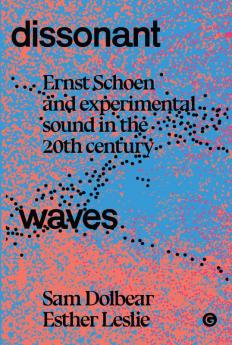This Book is Out of Stock!
Paperback
₹2950
(All inclusive*)
Delivery Options
*COD & Shipping Charges may apply on certain items.
Review final details at checkout.
Looking to place a bulk order? SUBMIT DETAILS
About The Book
Description
Author(s)
<b>An investigation of the cultures and technologies of early radio and how a generation of cultural operators--with Schoen at the center--addressed crisis and adversity.</b> <p/>Dials knobs microphones clocks; heads hands breath voices. Ernst Schoen joined Frankfurt Radio in the 1920s as programmer and accelerated the potentials of this collision of bodies and technologies. As with others of his generation Schoen experienced crisis after crisis from the violence of war the suicide of friends economic collapse and a brief episode of permitted experimentalism under the Weimar Republic for those who would foster aesthetic technical and political revolution. The counterreaction was Nazism--and Schoen and his milieux fell victim to it found ways out of it or hit against it with all their might. <p/><i>Dissonant Waves</i> tracks the life of Ernst Schoen--poet composer radio programmer theorist and best friend of Walter Benjamin from childhood--as he moves between Frankfurt Berlin Paris and London. It casts radio history and practice into concrete spaces into networks of friends and institutions into political exigencies and domestic plights and into broader aesthetic discussions of the politicization of art and the aestheticization of politics. Through friendship and comradeship a position in state-backed radio imprisonment exile networking in a new country re-emigration ill-treatment neglect Schoen suffers the century and articulates its broken promises. <p/>An exploration of the ripples of radio waves the circuits of experimentation and friendship and the proposals that half-found a route into the world--and might yet spark political-technical experimentation.
*COD & Shipping Charges may apply on certain items.
Review final details at checkout.
₹2950
Out Of Stock
All inclusive*
Details
ISBN 13
9781913380564
Publication Date
-19-09-2023
Pages
-320
Weight
-367 grams
Dimensions
-152x229x15.11 mm
Imprint
-Goldsmiths Press








